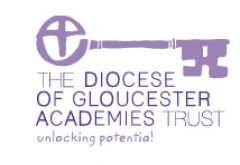ACTION RESEARCH: EXAMINING THE EFFECTIVENESS OF TALK PARTNERS AND PEER TUTORING AUTUMN 2017
Researcher: L Jones and C Sibert- Dursley C of E Primary Academy
Context: Year 5/6 and Y 3/4 Mathematics.
Desired Outcomes: Pupils to develop a level of competency in supporting peers with learning. Pupils to make progress in terms of reasoning and problem solving through talking about their learning and explaining it to someone else.
Evaluation:
Method 1:
Conduct observations of cooperative pairs, making detailed notes about how they interact, the impact on attitude and learning.
Method 2:
Interview pupils and complete a questionnaire exploring the following questions.
1. What do you think makes a good peer tutor?
2. Do you prefer to get feedback from teachers or peers?- why?
3. How does tutoring a peer help you?
Method 3:
Set up cooperative learning exercises and have class discussions- this is to be video-recorded and analysed.
End of Action research evaluation:
Repeat interview and observations.
Results:
Through my initial observations, it became clear that although pupils enjoyed talk partners, the quality of talk was not apparent. Pupils often spent the least amount of time discussing the task and the majority talking about unrelated matters. Most pupils did not use correct maths language in their discussions, which led to very basic, vague responses resulting in confusion amongst peers. Pupils found it difficult to verbalise their thought process; they knew how to reach the answer but found it hard to convey this to someone else in a way they understood. Pupils did not feel compelled to use equipment or pictorial methods to support another pupil, believing this was ‘something we do in key stage one’. A key issue was the lack of resilience in a number of pupils which led them to give up when the challenge level surpassed what they believed to be their ‘level’ which made it hard for the talk partner to engage.
After the initial observations, I carried out a series of actions to prepare the children for group work.
We began discussions based on what was helpful and unhelpful when working in a group. Many children thought group work benefitted them in many ways, as they were able to encourage each other and support one another by sharing different approaches to complete tasks. However, there were several comments that showed a more negative outlook towards group work. They did not feel it was helpful when other children made comments such as “I’m better than you”, and that they felt under pressure to work within time constraints. They also commented that the working atmosphere was often too noisy and distracting which meant they could not work effectively as a team. Some children mentioned that members of the class would dominate group tasks and not accept ideas from the rest of the team, which led to arguments, and feelings of isolations amongst the group.
As a result of this discussion, we looked into an approach to developing cooperation within a group using the ‘broken circles’ activity adapted from ‘broken squares by Dr Alex Bavelas (https://web.stanford.edu/class/ed284/csb/Broken/BC&Stext.doc ). The purpose of the activity was to develop pupils’ sensitivity to the needs of others within a group. They needed some guidance and training in how to understand and respond other people’s needs as well as the need to work together effectively to achieve a shared goal. The task involved them working without speaking or gesticulating to create their own circles from the pieces they were given. This required them to be actively aware of each group member and what they needed or could provide for the group to be successful. Some groups of children found the task to be quite a challenge, especially in Y3/4, as they could not think beyond themselves and consider what other pupils needed. Others found it challenging not to dominate or lead the group through verbal or physical means. However, some groups were successful in completing full circles because of good non-verbal communication and proactively looking at every member’s pieces to find the missing link.
Pupils completed evaluations of the task that were analysed. The results were as follows:
• They needed good communication- not only speech, but also eye contact, patience, listening and awareness.
• They needed to be aware of the needs of other people in order to support them.
• They became aware that they couldn’t leave anyone behind, they needed to support every member of the group for the group to be successful.
• Learnt that effective groups shared the workload; Everyone was important in equal measure, no dominating.
After the cooperative learning activity, we modelled good talk partners to the children and classes discussed all the ways they could support their tutee in developing skills and understanding. We introduced ‘maths help desks’ which we actively encouraged them to use when acting as a peer tutor. We adopted the C3B4Me approach whereby pupils were encouraged to exercise autonomy in seeking support from the book, board and buddy before seeing the adult.
Conclusion:
Pupils are now intuitively seeking support from their peer tutor without prompting, recognising the value of talking through their methods. Pupils are more equipped to accurately explain their thinking using a variety of tools such as place value counters, base 10 and pictorial representations which then support their peer’s understanding of the concept. Pupils are more enthusiastic about group work and because of this, their mindset has improved and motivation has increased. Pupils are making good progress in reasoning and problem solving as they are more practised in explaining their thinking to someone else.
